SEAHA Conferences
SEAHA Conference 2022
Exploring the Frontiers of Heritage Science, online event
7-8 September 2022
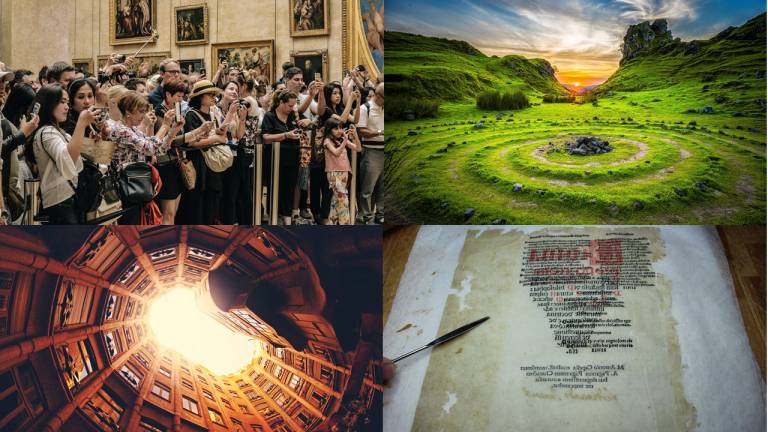
The theme of the 2022 conference was "What is next for heritage science?" Scientific research in heritage is evolving fast, growing in complexity, impact, diversity of topics and disciplinary approaches. In the middle of this dynamic landscape, the two-day conference offered a moment to pause and observe the surroundings, asking: what lies at the frontiers of our current knowledge?
The conference included sessions on heritage buildings and collections, natural heritage and landscapes, and engagement with heritage. It offered a range of keynote talks by international speakers and PhD researchers from the Centre for Doctoral Training in Science and Engineering in Arts Heritage and Archaeology, as well as many opportunities for debates and discussion.
A special in-person networking event for PhD students and postdocs was part of the conference. The free event provided an opportunity for Heritage Science PhD students and early career researchers in this field to meet with each other in a convivial environment to discuss problems, find solutions, and discover potential new collaborators.
SEAHA Conference 2019
Bridging the Gap between academic, practice and policy, University of Oxford
1-3 April 2019
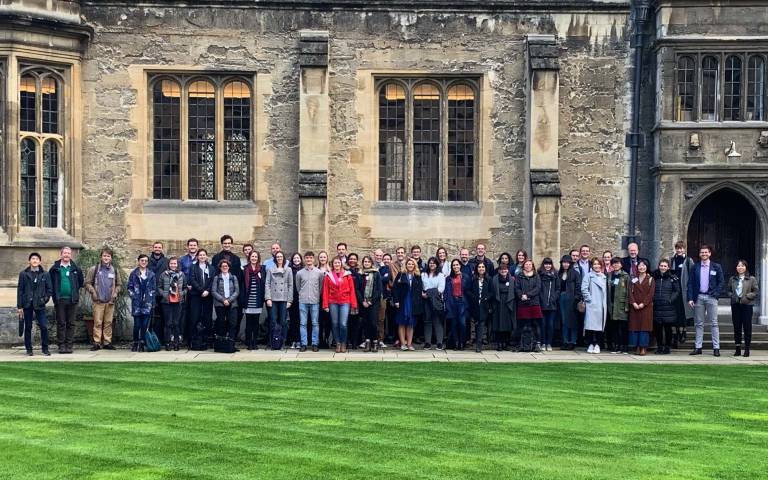
The theme of the 2019 conference was ‘Bridging the Gap’ and through this the conference committee aimed to explore the transition of research into policy and practice; closing the gap between the academia and practitioner in the heritage sector.
In addition to podium and poster presentations, this event featured four thematic workshop sessions based on built heritage management, imaging and non-contact technology, artificial intelligence and the heritage of landscapes. Each workshop provided SEAHA working groups a platform to showcase their research through practical demonstrations and focused discussion.
Presentations and posters were accessible to a cross disciplinary audience and fell into the following broad categories: pioneering heritage science, embracing new technology, stakeholder communication and engagement, and monitoring and conservation management.
A special lunchtime keynote event was held where Professor Mary Ryan of Imperial College London and the Brookhaven National Laboratory was the guest Keynote speaker. Professor Ryan delivered the lunchtime address in the historic surroundings of the University of Oxford’s Brasenose College Dining Hall and addressed the conference theme, covering some of her experiences working between academia and the public face of heritage science.
SEAHA Conference 2018
Collaborating with Industry, University College London
4-6 June 2018
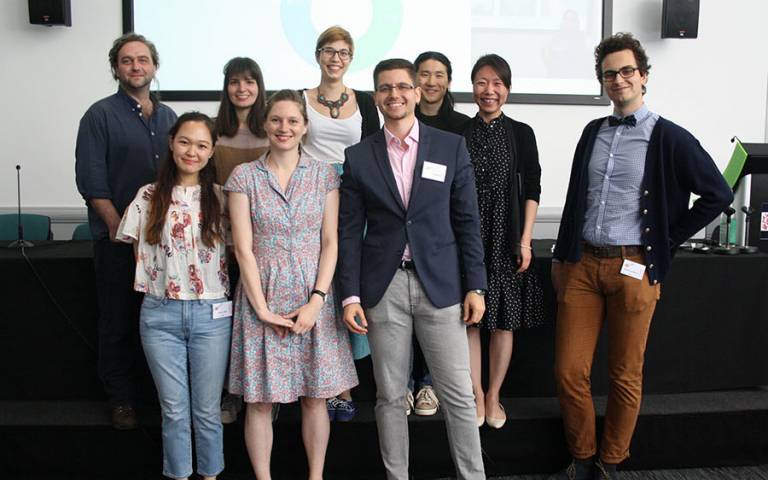
One of the conference’s themes was that public participation and benefit is enhanced by the optimisation of resources and technology made available by broadening and deepening scientific research, which also serves to strengthen the field of heritage science.
In organising this conference, we were particularly keen to expand the sector and community by supporting transdisciplinary conversations and collaborations.
Furthermore, during the conference, SEAHA was delighted to collaborate with ICOM-CC in organising a roundtable for emerging professionals, where the role of and challenges facing heritage science in a cross-disciplinary field was stressed.
Sponsors: Analytik, Heritage Science Journal, Headwall, National Heritage Science Forum
https://youtu.be/vJ_hdoeQmAA
SEAHA Conference 2017, University of Brighton
19-20 June 2017
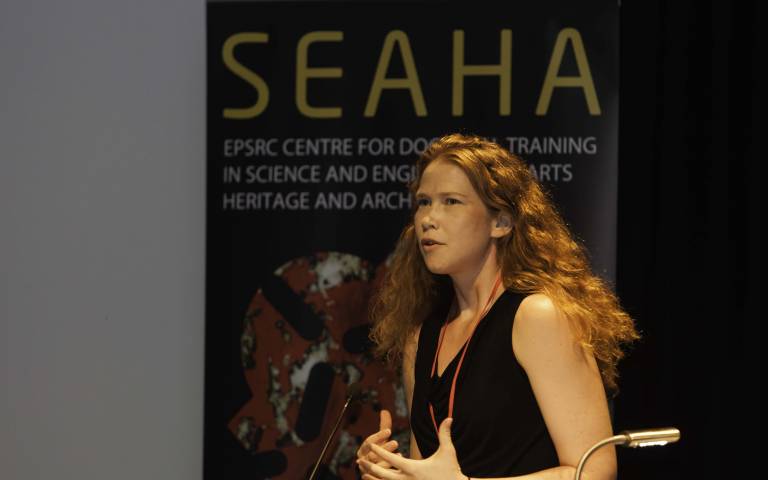
Tours of Brighton, the SEAHA Mobile Heritage Lab and the Conservation, Royal Pavilion and Brighton Museum were also organised for attendees. The conference concluded with an evening reception at the Brighton Museum.
Three keynote speeches were given by Dr Robert van Langh, Head of Conservation and Scientific Research at the Rijksmuseum and Chair of NICAS (Netherlands Institute for Conservation and Arts and Science), Mrs Katy Lithgow, the Head Conservator at the National Trust, and Prof May Cassar, the Director of UCL Institute for Sustainable Heritage and SEAHA.
Sponsors: This conference was endorsed by the Institute of Conservation (ICON) Heritage Science Group and the National Heritage Science Forum (NHSF).
Read the book of abstracts
SEAHA Conference 2016, University of Oxford
June 20-21 2016
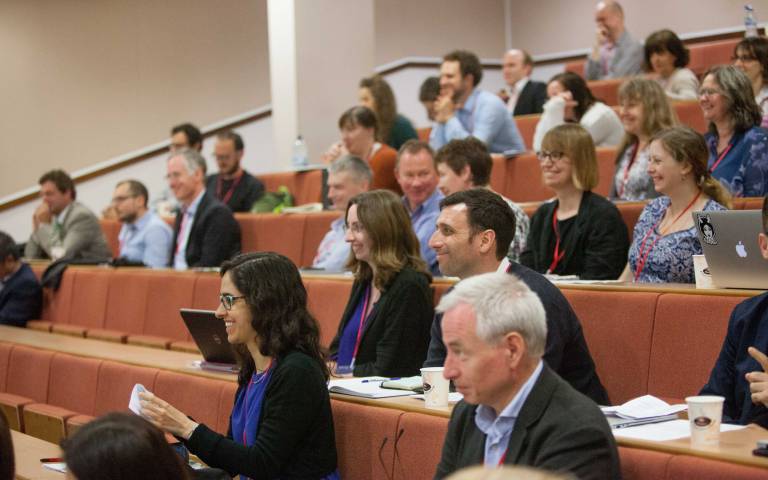
To get the full Oxford experience, delegates had the opportunity to attend a formal college dinner at St. John’s College. The conference was concluded with a reception held in the Divinity School, the University’s oldest teaching hall dating back to 1488.
Different aspects of heritage science were addressed by three keynote speakers: Sir Philip Campbell, the Editor-in-Chief of Nature, Dr Ewan Hyslop, the Head of Technical Research and Science at Historic Environment Scotland, and by Prof Philippe Walter, the Head of the Laboratory of Molecular and Structural Archaeology at Sorbonne Universités.
Sponsors: The conference was endorsed by the Institute of Conservation and the National Heritage Science Forum, with support from the Analytical Division of the Royal Society of Chemistry.
Read the book of abstracts
SEAHA Conference 2015, University College London
14-15 July 2015
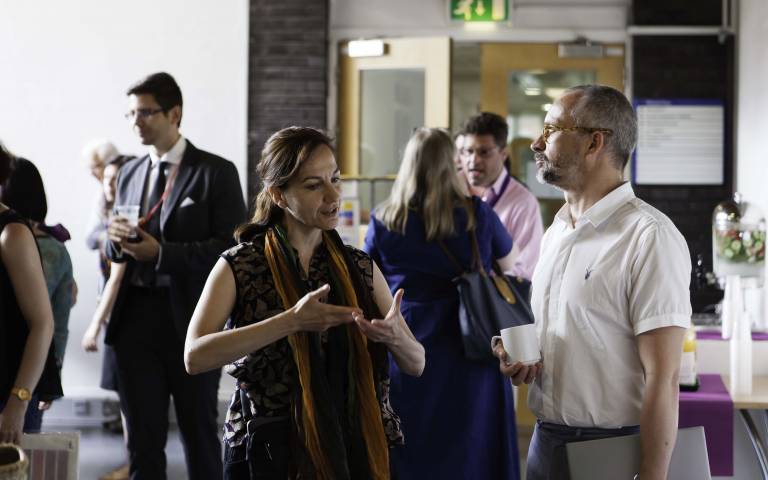
The keynote speakers included Dr Steve Trow, the Director of Heritage Protection for Historic England, Dr Sean O’Reilly, the Director of the Institute of Historic Building Conservation, and Nancy Bell, the Head of Collective Care at The National Archives and the Co-Chair of The National Heritage Science Forum.
The conference had three sessions that focused on digital heritage, the environment and materials. It comprised 3 keynote talks, 20 presentations and 75 posters. A round table discussion focused on the future of heritage science and included Professor David Arnold, Professor May Cassar, Kate Frame, Robin Higgons, Scott A. Orr and Professor Heather Viles.
Sponsors: The conference was a joint event of SEAHA, the EU FP7 Marie-Curie Action Project: Initial Training Network on Digital Cultural Heritage (ITN-DCH) and of the Heritage Consortium. The SEAHA conference was organised with endorsement by the National Heritage Science Forum.
Read the book of abstracts
 Close
Close

